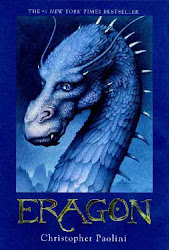Publ: 2004
My own copy
ISBN: 9780141380759
Genre: Young adult
Pages: 186p
Found by Serendipity
Rating: ***** ***
What led you to pick up this book?
It was in the library book sale and the p[lot sounded interesting.
Describe the plot without giving anything away.
“It would be much easier to tell this story if it were all about a chaste and perfect love between Two Children Against the World at an Extreme Time in History. But let's face it, that would be crap.” Daisy is sent from New York to England to spend a summer with cousins she has never met. They are Isaac, Edmond, Osbert and Piper. And two dogs and a goat. She's never met anyone quite like them before - and, as a dreamy English summer progresses, Daisy finds herself caught in a timeless bubble. It seems like the perfect summer. But their lives are about to explode. Falling in love is just the start of it. War breaks out - a war none of them understands, or really cares about, until it lands on their doorstep. The family is separated. The perfect summer is blown apart. Daisy's life is changed forever - and the world is too.
What did you think of the characters and style?
Amazingly good for a first novel – the characters are all so believable and vibrant and within a couple of pages one is hooked. It is advertised as being a novel for young adults but I have never been sure where the borderline comes. The vocabulary never stretches one; the number of pages is not extensive and the hero is a young adult but I don’t think that really affects who the audience is. For me it is a novel for all readers.
What did you like most about the book?
The originality of the plot.
Was there anything you didn't like about the book?
no
Thoughts on the book jacket / cover.
Didn’t do it justice.
Would I recommend it?
Yes.
Meg Rosoff was born in Boston, USA. She has worked in publishing, public relations and most recently advertising, but thinks the best job in the world would be head gardener for Regents Park. Meg lives in Highbury, North London.
Quotes
2 years ago














































